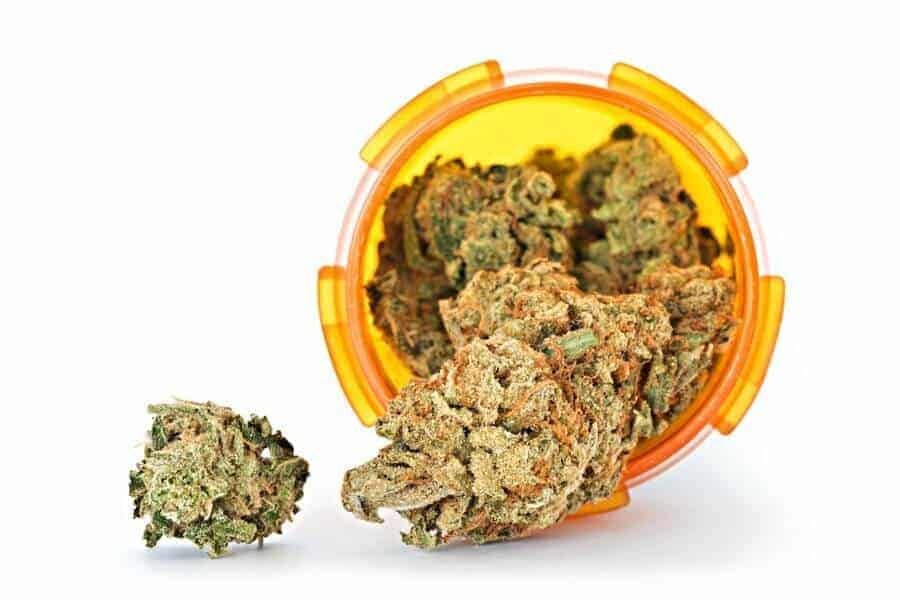In states where it is legal to use medical marijuana to manage chronic pain and other conditions, the annual number of deaths from prescription drug overdose is 25 percent lower than in states where medical marijuana remains illegal, new research suggests.
The findings of the study, led by researchers from the Johns Hopkins Bloomberg School of Public Health and the Philadelphia Veterans Affairs Medical Center, suggest that while medical marijuana laws can be controversial and opponents have raised concerns that they may promote marijuana use among children, they may have unintended benefits as well.
These findings suggest that wider availability of medical marijuana for people in pain might help reduce the growing number of overdose deaths attributed to prescription pain pills.
A report on the research appears in the Aug. 25 issue of JAMA Internal Medicine.
“Prescription drug abuse and deaths due to overdose have emerged as national public health crises,” says Colleen L. Barry, an associate professor in the Department of Health Policy and Management at the School of Public Health and senior author of the study. “As our awareness of the addiction and overdose risks associated with use of opioid painkillers such as Oxycontin and Vicodin grows, individuals with chronic pain and their medical providers may be opting to treat pain entirely or in part with medical marijuana, in states where this is legal.”
Using death certificate data compiled by the Centers for Disease Control and Prevention, the researchers found that the rate of prescription painkiller overdose deaths increased in all states from 1999 to 2010. The yearly rate of opioid painkiller overdose deaths in states with medical marijuana laws, however, was about 25 percent lower, on average, than the rate in states without these laws.
Three states—California, Oregon, and Washington—legalized medical marijuana prior to 1999, with 10 more following between then and 2010, the time period of the analysis. As of June 2014, another 10 states and Washington, D.C., had adopted similar laws.
“In absolute terms, states with a medical marijuana law had about 1,700 fewer opioid painkiller overdose deaths in 2010 than would be expected based on trends before the laws were passed,” says the study’s lead author, Marcus Bachhuber of the Philadelphia Veterans Affairs Medical Center and the University of Pennsylvania.
Bachhuber cautions that the exact mechanism underlying these results is unclear. It could be due, he says, to people with chronic pain choosing alternative treatments, or medical marijuana laws might also change the way people abuse or misuse prescription pain medications, or something else entirely.
Medical marijuana laws have been passed to give people with chronic or severe pain, sometimes due to conditions such as cancer or multiple sclerosis, access to the drug. Marijuana is believed to have painkilling properties and also to relieve nausea and improve appetite.
Brendan Saloner, an assistant professor in the Department of Health Policy and Management at the School of Public Health and a co-author of the study, says the benefits and risks of using medical marijuana to treat chronic pain remain unclear.
“Given the fast pace of policy change, more research is critical to understand how medical marijuana laws might be influencing both overdose deaths and the health trajectories of individuals suffering from chronic pain,” he says.



After 10yrs of methadone and other opiates and doctors saying this the only thing that could help you are these drugs, they where wrong, cannabis saved my life and give me my life back . Drug free and only cannabis for this kid . with opiates you lose say good buy to life and family with cannabis you mite lose family and friends but you have your health again.But that even changes with time. The proof is in the cannabis plant. to beat pain every minute of every day and play again and make my dreams come true again ,now thats real medicine .I thank god for this plant every day.It can help you to. From a really broken DAV. Take your life back its time. The key is lower THC HIGH CBD to function during daytime .then higher THC for sleeping.mixing plants gives you better balance after you no your strains. and concentrate after a hard day of sports get it. Also my weight was 375 lbs. i could not walk and now i am 225 lbs. and i play and dance again.even with bad knees ,hips,back,neck ,shoulders,feet, and organs from the pills i play golf.